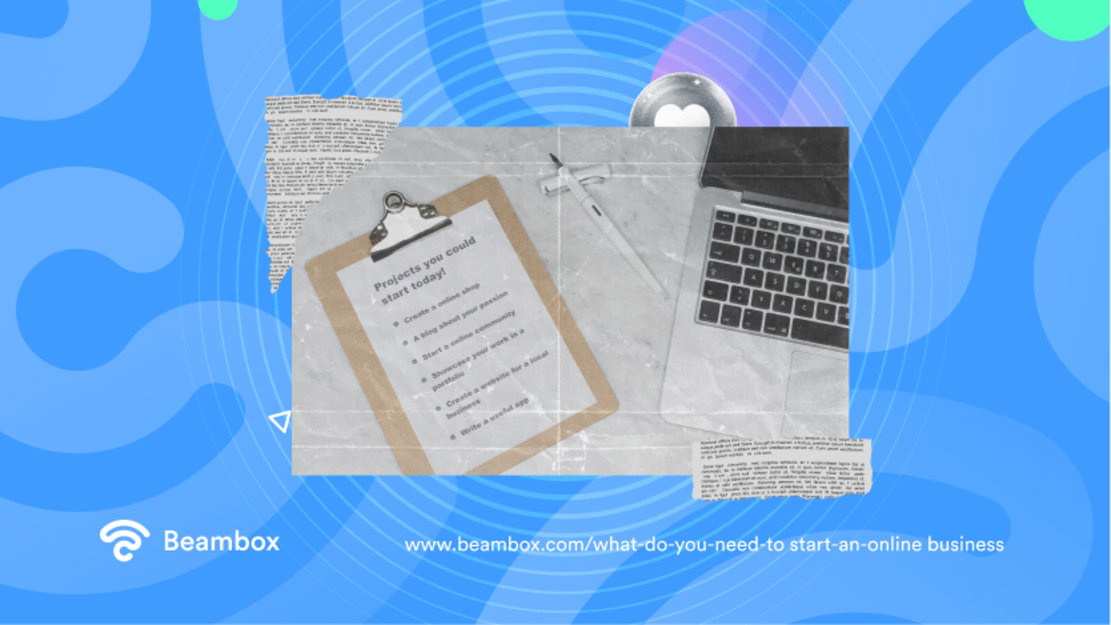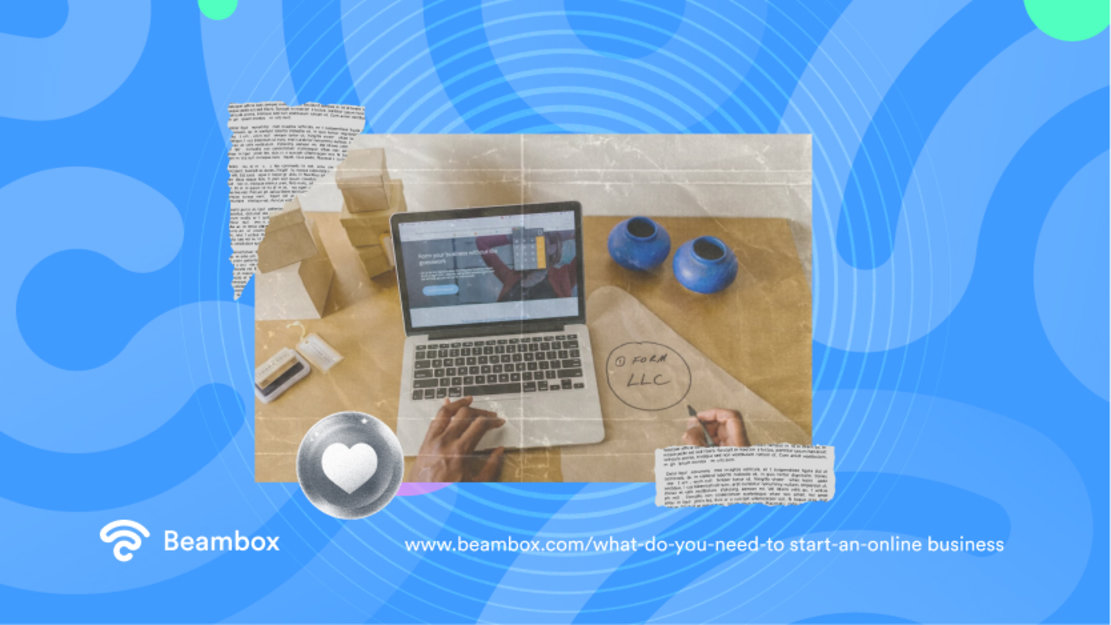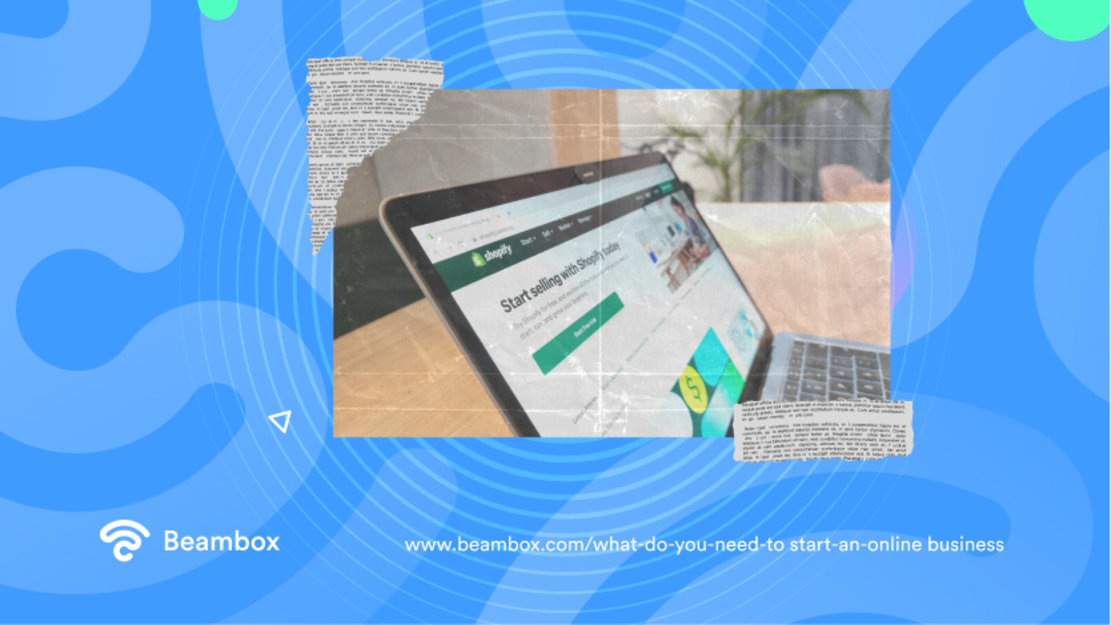What Do You Need To Start an Online Business Successfully
In the past, only a select few with solid networks and funding could think about starting a business. But now, the Internet has created equal opportunities for anyone willing to try. Knowing this, many people wonder, “What do you need to start an online business?”
Asking this question sets a strong foundation for success. Just because you aren’t using traditional means doesn’t mean you won’t have to make an effort. Besides, launching an online business involves unique techniques that you need to master before entering the digital marketplace.
This article will guide you through everything you need to know about this subject. We’ll start with the benefits, moving on to the steps and challenges, before concluding with tools and software. So, let’s get started.

5 Benefits of Starting an Online Business in 2024
Before starting a new venture, it’s good to know what to expect from it. When it comes to online businesses, you’ll rarely hear someone saying they don’t make a substantial return on investment. You can check benchmarks in your industry to give yourself an idea of what your costs and earnings can be.
But what makes these businesses such a success? Here are five main benefits that will help answer this question.
1. It Costs Lower Than Traditional Businesses
Lower cost is the most prominent perk that encourages people to choose online businesses over traditional ventures.
You don’t have to pay upfront rent or buy a location to set your business up. Even the investments you do have to make are lower than brick-and-mortar businesses. This is especially true if you start a service-based business.
Additionally, creating a large team might not be necessary when you’re just starting. All these things combine to make online businesses quite desirable from an investment cost perspective.
2. It’s More Convenient for Customers
With traditional businesses, customers have to visit you to make purchases. But when you sell online, they can buy your products or services from the comfort of their homes.
Owing to this, online businesses have become more convenient for customers. When given the choice, they often choose to buy online, which gives online ventures a competitive advantage.
3. You Can Reach More People
With the right strategies, small businesses can leverage digital marketing to reach more people online.
Since a traditional business is location-based, it can only sell to people within a particular radius. On the other hand, an online business can reach a wider audience, even on a global level.
People can buy your products or services from anywhere around the world. This effectively increases your customer base, allowing you to make more money.
4. You Can Enjoy More Flexibility
Online businesses often run on automation. You don’t need fixed opening and closing times, which means customers can make purchases at any time. In fact, you could take a break in the middle of the week without losing out on sales.
For example, let’s say you’re selling digital products on Etsy. Potential customers can place an order at any time, and you can respond at your convenience.
Of course, that doesn’t mean you can leave orders open for very long. But it’s still more flexible than a traditional business. Moreover, you can start these businesses right from home.
5. Scaling an Online Business Is Relatively Easier
The last main benefit of an online business, scalability, also relates to not needing a physical location.
You can add as many products or services as you want without adding more space or locations. However, like a traditional business, you’ll need more resources to do this.
For example, you’ll have to increase your inventory if you’re selling physical products. Or, if you’re selling services, you’ll have to outsource to other people to take on more clients.

7 Steps to Starting an Online Business Successfully
According to a survey, the e-commerce business sector in the US grew by 32.4% from 2019 to 2020. The growing number of online buyers is likely contributing to this statistic. Keep in mind that these numbers will only grow in the future.
Most entrepreneurs would be happy if those numbers came their way. But for that, you’ll have to join the expanding list of businesses shifting to or starting online. If you’re wondering how to set up an online business, here are the seven steps to starting an online business.
1. Create an Idea for Your Online Business
There are multiple ways to get your foot in the digital marketplace. You can sell tangible products, services, or media to clients worldwide. So, if you want to start an online business, the first step is to develop an idea. However, what you choose will depend on your expertise. For example, you could start a blog if you know how to write.
Let’s say you’re knowledgeable about tools and software. You can start by writing articles on these topics, slowly building an audience. Once your audience starts trusting you, you can incorporate affiliate marketing to sell products for a commission.
Or, if you’re good at making hand-made products such as jewelry, you can sell those items on an e-commerce platform.
Some other profitable online business ideas include online courses, selling products, web development, content creation, search engine optimization (SEO) consultancy, and dropshipping.
If none of these areas interest you, search for other ideas you can approach. Even if you’re unfamiliar with the subject, you can always learn. So don’t let a lack of knowledge hold you back.
2. Conduct Market Research To See if the Idea Is Worthwhile
One of the reasons why people fail at a business is choosing the wrong idea. The same is true for online businesses. If the idea you choose isn’t profitable, you might have a hard time finding success.
Therefore, the second step is to conduct market research and see whether your idea is worthwhile. If you’re not sure how to do this, here’s the process with an example.
Let’s say you want to start selling books online. To conduct market research for this idea, look at the overall market. What types of books are people demanding, and can you fulfill those demands? Answering these questions will narrow down your research for the next steps.
Once you have an idea about the market, determine who your target audience is. You can create better marketing campaigns and offers when you know who you will sell to.
For example, if you’ve chosen business books as your main product, you’ll have to target entrepreneurs and people in business. But if you’ve chosen to sell fiction books, your audience will be broader. Using your market research, you can create customer profiles for marketing purposes.
Next, look at your competitors and see how they handle their business operations. How do they fulfill orders and promote their business? Moreover, research the challenges they’re facing to prepare yourself.
Once you’ve researched these areas, you’ll have a clear answer to whether your idea is worthwhile. If not, try another idea.

3. Create a Business Plan and Choose a Name
The third step is creating a plan and choosing a name for your business. Starting without a business plan can be quite risky since it’s a roadmap of how you’ll manage your business. After all, you wouldn’t start a journey without an accurate and up-to-date map, would you? The same is true when starting an online business.
Besides, a clear business plan can help you secure good funding for your idea. So, begin drafting the business plan with its executive summary. It’s an overview of your business and a summary of the rest of the plan.
The main elements of this summary are business concept, goals and vision, team, marketing strategy, financial state, and target market. Keep adding things as your plan takes shape.
Next, write your company’s description. This will benefit potential investors and your team as it will include your vision and mission statements.
The market research you conducted in the previous step will also be a part of your business plan. Moreover, you’ll have to outline your company’s management and organization.
Then, include your products and services with a short description for each. Lastly, conclude your business plan with marketing strategies, logistics, and financial plans.
After your business plan is complete, choose a name for your business. You can also do this before the plan if you know enough about your idea. But remember, the best names are short, relevant, and memorable, so choose wisely.
4. Secure Funding for Your Business
People often think that starting an online business won’t require any investment. But no matter what business you start, you’ll need at least some funding. Let’s say you want to start blogging. Can you do that without building a website and buying some tools?
Even selling your services on a freelance platform will require some money. For example, you must buy “Connects” on Upwork or promote your gigs on Fiverr. So, planning how you’ll fund your business before launching is always a good idea. Fortunately, there are some options you can try.
You can use your savings to start funding your business. As you start earning money, you can invest it back into the business to experience growth.
Alternatively, if your online business idea has the potential for substantial growth, capitalists and investors might gain interest. They’ll usually ask you to give them equity in your business in exchange for the money they invest.
As a last resort, you can ask your friends and family to invest money in your business. You can use websites like Kickstarter or Indiegogo to do crowdfunding.

5. Choose a Structure for Your Online Business
Once you’ve secured the funding, decide on a business structure and take care of the legal processes. Remember, the type of structure you choose will shape various aspects of your business, including liability. You’ll also need this information to register your online business and fulfill the legal formalities.
However, the information might overwhelm you if you’re unfamiliar with the subject. Therefore, it’s a good idea to consult a professional or seek legal counsel to understand each one in detail. Doing so will help you reach a fruitful decision and also help you create a secure agreement.
Moreover, you’ll have to obtain the relevant licenses and permits. Otherwise, you might face legal complications before your online business even launches. With that said, here’s a brief introduction to three of the most popular structures:
- Sole proprietorship: As the name suggests, you own and run your online business alone in this type of business. While it’s the simplest structure, you must bear all the responsibility and risk. It’s also a structure with minimal legal formalities, so it’s popular among small businesses and freelancers.
- Partnership: Another option is to partner with other people or businesses to divide the profits among all partners. Here, each partner will face risk depending on the type of partnership agreement. Moreover, individual partners report partnership profits and losses on their tax returns.
- Limited liability company: This hybrid structure combines elements of partnerships and corporations. It provides more flexibility in how you run the business and file taxes. Moreover, it protects the personal assets of its members.
6. Choose Your Business Platform
Similar to finding a location in traditional businesses, you need to choose a platform for your online business. After all, you need a source to display what you’re selling. However, the type of platform you choose will depend on the business idea you chose in the first step.
First, let’s take a scenario where you want to sell products. The easiest and most cost-effective option here would be to set up an account on e-commerce marketplaces. For example, if you’re selling DIY decorations, Etsy is a logical choice since people usually search for these things there.
On the other hand, you could try the bigger names like Amazon, Alibaba, etc. But remember, you have to gain knowledge about these marketplaces and always remain up-to-date about new strategies. Another option would be to create your own e-commerce website.
However, if you’re selling services, online marketplaces might be unable to help. You’ll either have to create your website, use social media, or freelance marketplaces.
Lastly, if you’re selling media such as photographs, consider creating accounts on websites such as Shutterstock, Unsplash, and Pexels.
7. Work on the Marketing Strategies for Before and After You Launch
The last step is to work on a digital marketing strategy before and after the launch of your online business. After all, how will you find clients if you don’t let people know what you’re selling? So, here’s what you need to do.
Before you launch your online business, you have to build anticipation for it. This means you shouldn’t wait for your business to launch and start promoting it. The more curious people are, the more traction your business will get once you launch it.
Therefore, create social media accounts for your business as soon as you’ve chosen a name. Moreover, create marketing campaigns that engage your audience. For example, you can use marketing to drop subtle hints and ask your audience what they think you’re launching.
Once you’ve launched it, focus on getting clients with audience targeting. Determine what pain points your business solves. Then, consider the types of marketing campaigns that can solve those pain points. Your best bet is to build a connection and trust with your target audience.

What Do You Need To Start an Online Business in Terms of Tools and Software
The specific tools and software you need when considering how to open an online business will depend on your chosen idea. However, some things will always remain the same no matter what niche you choose, namely devices and an Internet connection.
Moreover, you’ll need accounting software to avoid the errors that come with manual finance tracking. You might also need scheduling software such as Notion to help manage all the tasks efficiently.
You’ll have to track your progress on social media. Some of the best tools to help you with this are Sprout Social and HubSpot.
Those are the general tools you need, regardless of the idea you choose. However, there can be other tools that might be relevant for you.
As mentioned earlier, you have the option to create your own website. If you take this option, you can use various website builders. Shopify or Woocommerce are best for selling products, while WordPress or Squarespace work to sell services.
You’ll also have to research the tools for your specific idea. For example, blogging will require SEO tools, and designing will require Adobe Illustrator or Canva.
Common Challenges People Face When Starting an Online Business
No business is immune to challenges, and an online business is no different. There will always be a risk of failure, no matter what idea you choose. So, prepare yourself for everything that comes your way.
Moreover, many people are shifting their businesses online, so you’ll have to face much competition. For example, freelancers must lower their prices to keep getting clients constantly.
Additionally, it’s hard to make people trust you from behind a screen. Therefore, you might experience lower customer engagement and retention. Lastly, there’s also a risk of security breaches.

Set Up an Online Business To Improve Your Physical Business
You know now what you need to start an online business. It all starts with an idea and then working smartly to make it a reality.
If you already own a physical business, consider setting up an online counterpart for it. You will provide convenience and ease to your customers, increasing your chances of success.
A WiFi marketing solution like Beambox can help you collect customer data to target the right person online. Moreover, with these insights, you can craft perfect online communication. Try Beambox for free for thirty days!
Get Started With Free WiFi Marketing
Beambox helps businesses like yours grow with data capture, marketing automation and reputation management.
Sign up for 30 days free


